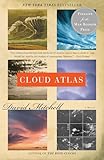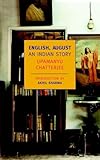My year in reading has been a lesson in letting go. It began with the physical: when my apartment building was sold in January, I began a series of culls of my unwieldy book collection, of a set of shelves I’d so carefully organized when I moved in, now obscured by random stacks of cheap paperbacks, uncorrected proofs, impulse purchases, unwanted offerings from friends — so many books I’d never read, would never read, and simply couldn’t bring myself to pack up and unpack again somewhere else. I’ve always tended towards nesting and collecting — this is the kindest possible way to describe my perpetual state of clutter — but for once, I did it, discarding without mercy, hauling big bags of books into the office and depositing them on our communal bench for the next unsuspecting hoarder. I found a new apartment, and I swore I’d do the same for all the other unwieldy piles of things in my life before moving day arrived, but in the end, I never did. They were unceremoniously dumped into boxes and trucked a few exits down the BQE, then shoved into closets and corners; I have yet to fully finish unpacking them all.
But there was more to the great book giveaway than simple space: I have been slowly learning to let go of books on another level — something less tangible, I guess, maybe intellectual, or emotional, or spiritual. I am learning (just now!) to shed the guilt that keeps me turning the pages of books I honestly cannot stand; I am working to tell the difference between a book that is worth the struggle and a book that simply isn’t for me. This is, I suppose, all part of growing older: establishing and developing taste, learning to define and hone it, and being careful not to let your mind narrow — or to snap shut — in the process. And even as I joined this site as a staff writer a few months back, I was busy practicing reading books not for work, brushing off a whole different subsection of guilt, where I read classics, or books that came out three years ago, or something trashy, or novels I’ve come back to more times than seems healthy, and that was all OK, because, after all, there was a reason I’d become an English major in the first place.


 But here, at the end of all this, I’m left with an incredibly scattered year in reading — I’m scratching my head and looking back at the last 11 months and wondering what the hell I was thinking through all of this. In the spring, I took a course in literary theory, filling in a gap in my undergraduate education, I thought, which meant rereading Frankenstein and The Tempest and then sighing a lot through Jacques Derrida & Co. before picking my own book — A Passage to India — for the final paper. It was my third time around, and I found it so different to when I read it last — five years ago — that it was kind of astounding. Who knew there was so much nuance! (Most people.) When I later revisited Netherland, for an essay on cricket, my memory of it held up better. I read Cloud Atlas sitting at a sidewalk café, and marveled at the number of people who stopped in their tracks to talk to me about it. There was some great new stuff — Adam Wilson’s Flatscreen, for one, around which I built an argument about modern-day slacker literature for my first Millions piece of the year. There was some not-so-great new stuff — much of that gave me the chance to practice the whole “putting down and not feeling guilty” thing.
But here, at the end of all this, I’m left with an incredibly scattered year in reading — I’m scratching my head and looking back at the last 11 months and wondering what the hell I was thinking through all of this. In the spring, I took a course in literary theory, filling in a gap in my undergraduate education, I thought, which meant rereading Frankenstein and The Tempest and then sighing a lot through Jacques Derrida & Co. before picking my own book — A Passage to India — for the final paper. It was my third time around, and I found it so different to when I read it last — five years ago — that it was kind of astounding. Who knew there was so much nuance! (Most people.) When I later revisited Netherland, for an essay on cricket, my memory of it held up better. I read Cloud Atlas sitting at a sidewalk café, and marveled at the number of people who stopped in their tracks to talk to me about it. There was some great new stuff — Adam Wilson’s Flatscreen, for one, around which I built an argument about modern-day slacker literature for my first Millions piece of the year. There was some not-so-great new stuff — much of that gave me the chance to practice the whole “putting down and not feeling guilty” thing.

 It mostly felt like I was reading a bunch of the not-particularly-new-but-largely-wonderful, like John Jeremiah Sullivan’s Pulphead, followed by his earlier Blood Horses, part history, part mythology, part memoir, meandering and powerfully direct all at once. There was something slowly intoxicating about English, August, by Upamanyu Chatterjee, which I picked up for the aforementioned slacker lit piece and with which I easily fell in love. And then there was my favorite book this year, hands-down — Shehan Karunatilaka’s The Legend of Pradeep Mathew, published elsewhere as Chinaman, a reference to the left-armed bowl for which Mathew, the elusive cricketer at the heart of the story, is known. It’s the sort of book that turns you into an evangelist, in an almost embarrassing way, like, reaching into your purse to wave a copy in peoples’ faces when someone casually mentions, “I hear you’re writing about cricket?”
It mostly felt like I was reading a bunch of the not-particularly-new-but-largely-wonderful, like John Jeremiah Sullivan’s Pulphead, followed by his earlier Blood Horses, part history, part mythology, part memoir, meandering and powerfully direct all at once. There was something slowly intoxicating about English, August, by Upamanyu Chatterjee, which I picked up for the aforementioned slacker lit piece and with which I easily fell in love. And then there was my favorite book this year, hands-down — Shehan Karunatilaka’s The Legend of Pradeep Mathew, published elsewhere as Chinaman, a reference to the left-armed bowl for which Mathew, the elusive cricketer at the heart of the story, is known. It’s the sort of book that turns you into an evangelist, in an almost embarrassing way, like, reaching into your purse to wave a copy in peoples’ faces when someone casually mentions, “I hear you’re writing about cricket?”
 But even as books come and go, loosened and removed from the physical and metaphorical shelves, the ones that stay get stickier, and I’ve got a very sticky shelf full of the collected works of Stephen Fry. I started the year with Fry’s new memoir, The Fry Chronicles, which I enjoyed, though not nearly as much as the first installment, Moab Is My Washpot. When he came to America to promote it, I waited for hours to ask him to sign a copy of his first book, The Liar, which I have read approximately one million times. As I handed him the world’s crappiest, most yellowed paperback, dog-eared and spine heavily creased, already shamefully beat-up probably a decade before I paid £3 for it at that permanent used book sale under the Waterloo Bridge, I blurted out how many times I’d read it and how much I loved it. He looked utterly exhausted, but he smiled brightly as he signed the title page, exclaiming, “Oh, well, thank you!”
But even as books come and go, loosened and removed from the physical and metaphorical shelves, the ones that stay get stickier, and I’ve got a very sticky shelf full of the collected works of Stephen Fry. I started the year with Fry’s new memoir, The Fry Chronicles, which I enjoyed, though not nearly as much as the first installment, Moab Is My Washpot. When he came to America to promote it, I waited for hours to ask him to sign a copy of his first book, The Liar, which I have read approximately one million times. As I handed him the world’s crappiest, most yellowed paperback, dog-eared and spine heavily creased, already shamefully beat-up probably a decade before I paid £3 for it at that permanent used book sale under the Waterloo Bridge, I blurted out how many times I’d read it and how much I loved it. He looked utterly exhausted, but he smiled brightly as he signed the title page, exclaiming, “Oh, well, thank you!”
More from A Year in Reading 2012
Don’t miss: A Year in Reading 2011, 2010, 2009, 2008, 2007, 2006, 2005
The good stuff: The Millions’ Notable articles
The motherlode: The Millions’ Books and Reviews
Like what you see? Learn about 5 insanely easy ways to Support The Millions, and follow The Millions on Twitter, Facebook, Tumblr.










